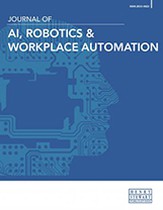Information retrieval from textual data: Harnessing large language models, retrieval augmented generation and prompt engineering
Abstract
This paper describes how recent advancements in the field of Generative AI (GenAI), and more specifically large language models (LLMs), are incorporated into a practical application that solves the widespread and relevant business problem of information retrieval from textual data in PDF format: searching through legal texts, financial reports, research articles and so on. Marketing research, for example, often requires reading through hundreds of pages of financial reports to extract key information for research on competitors, partners, markets and prospective clients. It is a manual, error-prone and time-consuming task for marketers, where until recently there was little scope for automation, optimisation and scaling. The application we have developed combines LLMs with a retrieval augmented generation (RAG) architecture and prompt engineering to make this process more efficient. We have developed a chatbot that allows the user to upload multiple PDF documents and obtain a summary of predefined key areas as well as to ask specific questions and get answers from the combined documents’ content. The application’s architecture begins with the creation of an index for each of the PDF files. This index includes embedding the textual content and constructing a vector store. A query engine, employing a small-to-big retrieval method, is then used to accurately respond to a set of predefined questions for each PDF to create the summary. The prompt has been designed in a manner that minimises the risk of hallucination which is common in this type of model. The user interacts with the model via a chatbot feature. It utilises similar small-to-big retrieval techniques over the indices for straightforward queries, and a more complex sub-questions engine for in-depth analysis, providing a comprehensive and interactive tool for document analysis. We have estimated that the implementation of this tool would reduce the time spent on manual research tasks by around 60 per cent, based on the discussions we have had with potential users.
The full article is available to subscribers to the journal.
Author's Biography
Asen Hikov is a Data Scientist at Amplify Analytix, specialising in machine learning (ML) and statistics. He is currently involved in developing Generative AI (GenAI) solutions at Amplify. He holds a bachelor’s degree in Theoretical Physics and a master’s degree in Probability and Statistics from Sofia University.
Laura Murphy is the Co-Founder and Chief Executive Officer of Amplify Analytix. A former head of business transformation in international markets, Laura specialises in helping organisations embrace the benefits of data science to improve commercial performance.
